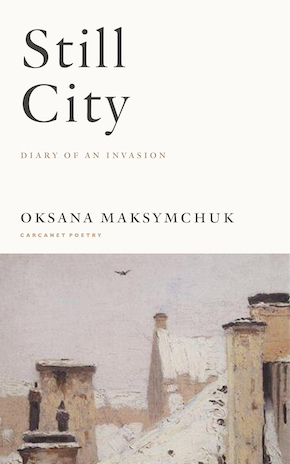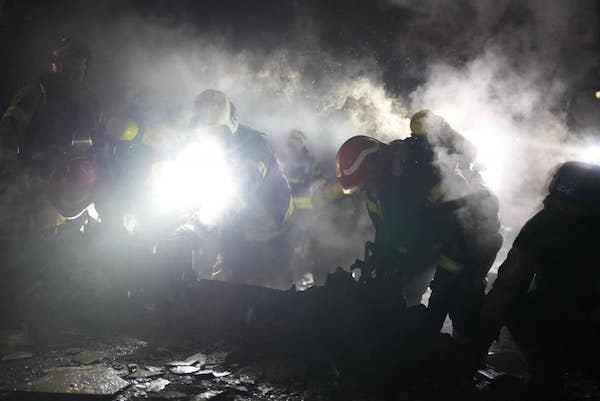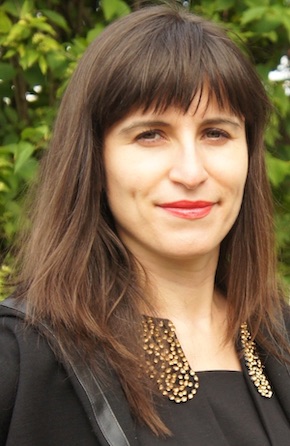From Still City: Diary of an Invasion
by Oksana Maksymchuk
Still City, Oksana Maksymchuk’s debut poetry collection in English, reflects life in the wake of extreme and unpredictable violence. Drawing on sources including social media, news coverage, witness accounts, recorded oral histories, photographs, drone video footage, intercepted communication and official documents, Maksymchuk tells the shared experience of the Russian invasion of Ukraine. “By calling it a diary,” she reflects in a blog for publisher Carcanet, “I wanted to tie the poems to a particular time and place, and also, to convey that it’s not a fictionalised invention but a living poet’s journal of an actual historical process. Yet in writing it, I also attempted to transcend the particularity of individual experience, to bring out its universal features, while raising questions about the wilful transformation of suffering into art, the distortion it involves, its ethical and aesthetic implications. The poems are self-conscious about their authority and purpose – why do we exist, they ask, and what are we for?”
The three poems below vividly capture the bewildering brutality and surreality of the onslaught from up close and afar.
—
Drone Footage
When a shell strikes a person
there’s a scattering
resembling a flock of birds
taking off
hands flying in the air
signalling
feet levitating
in mid-kick
their avian shapes
casting shadows
lithe and carefree
from on high
—
Rocket in the Room

what the rocket has in common
with the room full of children
is its current location
somebody thought the rocket
belonged in the room with children
and now it’s here
in time
someone else will come
and collect the pieces
of the rocket and of the children
weeping and shouting insults
at the sky
but for now
this rocket and these children
are an unsorted matter
a puzzle
awaiting a solution
—
Algorithmic Meltdown
I don’t know if the images of
bombings are what you yearn for
in your feed
Scrolling on my phone, I too prefer
funny puppy videos
flowers and minerals, food porn
Instead, I see pictures of ruins
blackened privates exposed
puddles of glass
Somebody’s liver
smeared over the asphalt
like melted ghee
Somebody’s daughter
sandwiched between the slabs
of concrete
Sight, the philosopher said, is first
of the senses, it reigns supreme
making sense of things
As I hover over the images —
toggling between the close-ups
and ‘dollhouse view’
peering into cracked mirrors
wedging doors with my cursor
what do I hope
to unsee?
—

Oksana Maksymchuk is a Ukrainian-American poet, scholar and literary translator born in Lviv in 1982. She is the author of award-winning poetry collections Xenia and Lovy in the Ukrainian, as well as a co-editor of the anthology of contemporary poetry Words for War: New Poems from Ukraine. Her English-language poems have appeared in The Irish Times, The London Magazine, The Paris Review, Poetry London, PN Review, The Poetry Review and elsewhere. Oksana was a recipient of a National Endowment for the Arts translation fellowship and a winner of Scaglione Prize from the Modern Language Association of America, Peterson Translated Book Award, American Association for Ukrainian Studies Translation Prize, Richmond Lattimore Prize, and Joseph Brodsky/Stephen Spender Prize. She holds a PhD in ancient philosophy from Northwestern University. In recent years, she has been dividing her time between her home in Lviv and various visiting appointments in the United States and Europe. Still City is published in paperback and eBook by Carcanet.
Read more
Carcanet blog: Diary of an Invasion
oksanamaksymchuk.com
@ok_maksymchuk
@Carcanet
Author photo by Natalya Mykhailychenko

